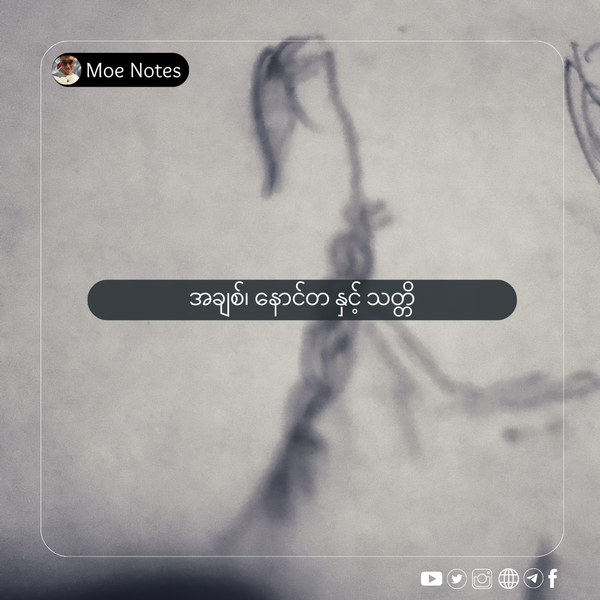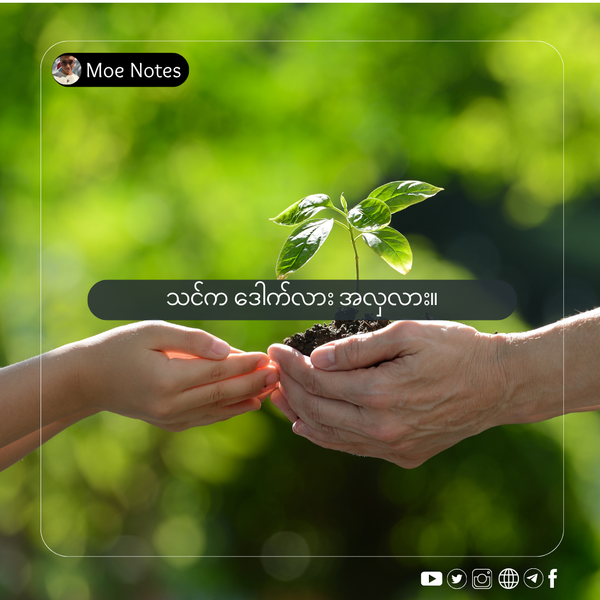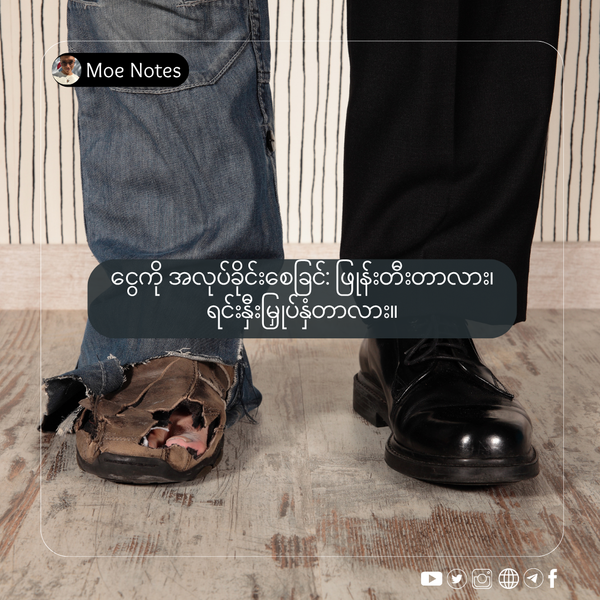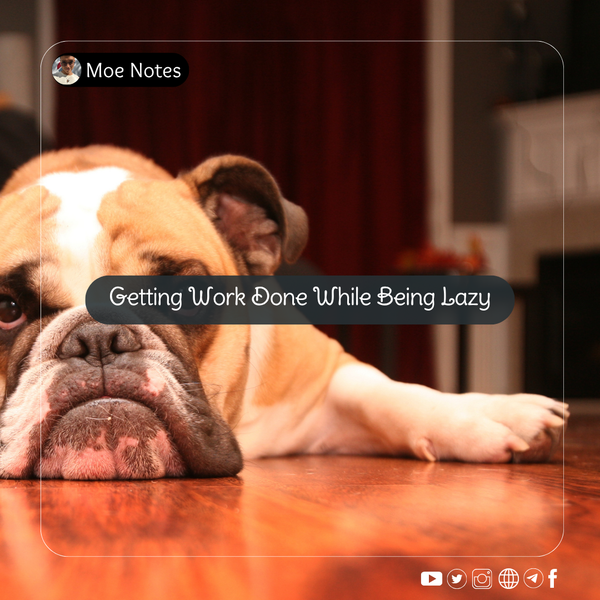Why Do People Want to Stay Abroad?
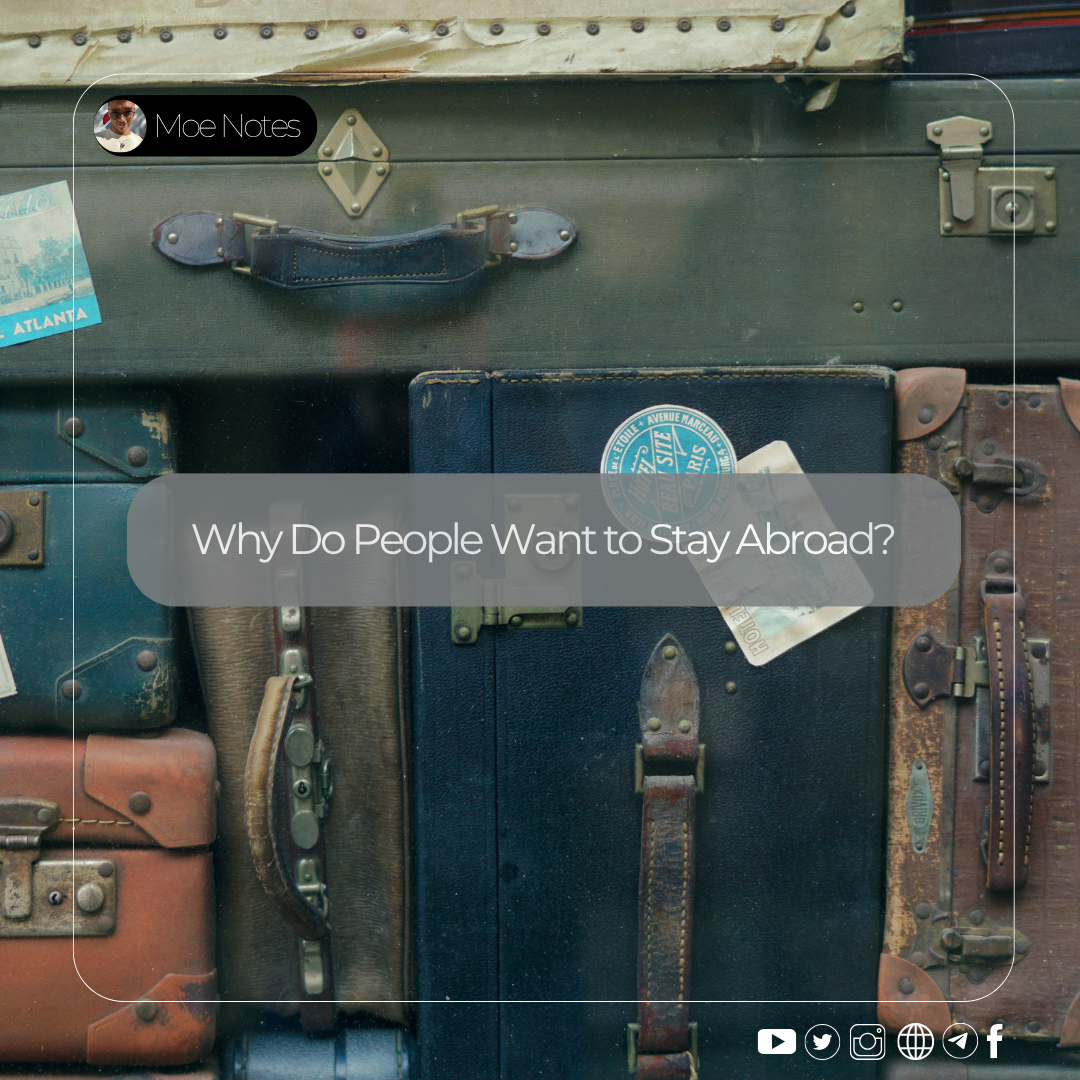
This article is also available in [Burmese]
A short answer would be: once you have experienced something good, it is very difficult to go back to something bad. The long answer, the one that truly matters, is this.
Introduction: Beyond the Movie Stereotypes
First, let me define what "abroad" means. If you look at it from the point of view of a Burmese movie from the 2000s, "abroad" is a glossy paradise. It’s a place where people with foreign-sounding names wear beautiful suits, put on sunglasses, and talk on the phone from high-rise apartments with panoramic city views. Success seems effortless. But if you look at it from another traditional perspective, it's a savage place. A place without culture, full of profanity, where women are shameless and overly liberal, and ancient traditions are forgotten. A decadent wasteland.
From my generation's perspective, growing up with foreign games, foreign movies, and foreign products, "abroad" was simply a place where anything was possible. But what changes when you actually arrive? The common answer you will hear from those who have left is: "It's not that different, and in some ways, it's even harder."
I want to challenge that phrase, "not that different." It doesn't mean everything is the same. Don't think it means you've just arrived in another broken country. What people mean is that life abroad is difficult in its own ways. They might not be able to explain why it’s difficult, but they feel it. This is because I want to talk about "living standard" in its deepest sense. As I understand it, living standard isn't about wearing nice clothes or carrying luxury brands. It encompasses the mentality of the people, their ethics, their character, the systems that govern them, and their entire way of life.
Part 1: The Invisible Rules - A Thought Experiment in Societal Norms
Let's imagine we take an ordinary person from Yangon and suddenly drop them into the UK. Before they adapt, what are the first things they might do or think? Their actions would reveal the invisible rules they've lived by their whole life.
- They might litter on the street. Seeing a small pile of trash, they might add to it, because public space is seen as no one's responsibility. They might spit on the pavement without a second thought. This contrasts with the UK, where a strong social contract—and the threat of heavy fines—keeps communal areas clean.
- When an ambulance wails, they might stand still, wondering why all the cars are immediately and almost instinctively pulling over. This reflex to clear a path for emergency services reveals a collective respect for rules and a shared sense of public duty that is often absent back home, where individual urgency trumps all.
- They will almost certainly try to haggle at a supermarket or a retail store. This is a habit born from a system of unregulated prices and a lack of trust between buyer and seller. In the UK, where prices are fixed and transparent, this behaviour would be met with confusion.
- They might feel a sense of deep-seated fear or disgust upon seeing the police. In Myanmar, an encounter with the police is rarely a positive one. Here, the expectation is one of professional assistance, not intimidation.
This is a list of general reactions. The gap in societal norms, in the unspoken rules of how people coexist in public, is real, and it is vast.
Part 2: A Personal Confession - The Humbling Journey of Adaptation
I don't consider myself to have a low living standard. I come from a background that is likely better than average. But when I first arrived and moved into a shared student flat, I was a terrible flatmate. I didn’t get along well with the others, not because they were unkind, but because my habits were inconsiderate.
I was messy in the kitchen. I’d finish cooking and leave oily pans in the sink, thinking, "I'll clean it later." I’d spill water or food on the hob and not wipe it down immediately. I was noisy, making calls late at night without considering that my flatmates might be sleeping just a thin wall away. I wasn’t a bad person, but I was a product of an environment where personal space and shared responsibility were not emphasized.
Over time, through quiet observation and a few awkward conversations, I learned. I learned to clean as I cooked. I learned to wipe down every surface, to wash my dishes immediately, to speak quietly on the phone after 10 PM. Was this method better in the long run? Absolutely. I became a cleaner, more considerate person, which made living alone and interacting with friends much easier. More than that, I discovered a sense of mental clarity and self-respect that comes from living in an orderly and respectful environment. This isn't about the UK "making me clean"; it's about being in an environment that encourages and rewards mutual respect.
Part 3: The Normalization of Injustice - A List of Things We Shouldn't Have to Tolerate
Everyone who returns to Myanmar from abroad criticizes the country. People are leaving now because of the coup, because it’s no longer safe. But why have people been leaving for decades before this?
It's because there are countless small injustices we are forced to experience every day, things we have been conditioned to ignore, to turn a blind eye to, to accept as "normal." These are the thousand tiny cuts that wear down the human spirit.
For example:
- At the market, vendors will sell you rotten produce hidden beneath a layer of fresh goods. My mother would come home from the market with mangoes that looked perfect, only to find the bottom of the bag filled with bruised, spoiled fruit. And what can you do? Nothing.
- On the bus, drivers scream and shout, and self-appointed "conductors" act like gangsters, and we just have to accept it as part of the daily commute.
- In any queue, for a bus, at a shop, anywhere, people will cut in front of you without a word, and we just have to accept it. This is even worse when dealing with military families or those connected to the regime, who act with complete impunity.
- At a government office, you are treated with contempt. Clerks will sit there with a sour face, deliberately ignoring you while they chat with their colleagues or scroll on their phones. You are made to feel like an inconvenience.
- The Passport Office is a perfect microcosm of systemic corruption. You are forced to queue from before dawn, just to enter a lottery for a QR code that never seems to work. The system is deliberately broken to empower a network of brokers who operate in plain sight, charging enormous fees. And you see the officials inside with the latest iPhones and newest cars that their salaries could never afford, all while ordinary people suffer outside.
- In a taxi, the car often smells of gasoline, and the driver will quote you a price based on how rich you look or how affluent your destination is. They prey on perceived wealth.
The ones who suffer the most from this systemic decay are always the ordinary people. They might not even be able to read this article, because who can afford to waste their mobile data and VPN connection on long essays in a time of survival?
Part 4: The Answer - What a Functional, Dignified Society Feels Like
Why do people want to stay abroad? Because in a country with full human rights and a functional rule of law, none of the things on the list above are considered normal.
Yes, it's expensive. Yes, you pay high taxes. But in return, you get a system that works and, most importantly, treats you with dignity.
- Government offices are generally helpful. The process might be slow and bureaucratic, but there is no hidden "table money," no bribery. You are treated like a citizen with rights.
- If you buy a faulty product, you can return it for a full refund, no questions asked. Consumer rights are legally protected.
- Bus drivers are calm and professional. People queue in an orderly fashion.
- You can walk outside at any time of day or night without a constant, gnawing fear for your personal safety.
Is it any wonder people want to gain residency or citizenship in a country like this? The passport alone is a symbol of this difference. It grants you visa-free access to the world and allows you to pass through immigration smoothly, as a global citizen rather than a suspect. And that's just the passport; it doesn't even begin to cover the other rights that citizens enjoy.
Conclusion: The Change Within
There are so many more positive changes I could list. For me, living abroad has not made me rude or "foreign." It has made me a better person. I am cleaner. More disciplined. More organized. More open-minded. The change I have seen in myself is the change I hope for my country. It is not about becoming 'Western'; it is about adopting universal principles of respect, discipline, and accountability.
I am happy with these changes in myself. And I hope, one day, to see these same changes blossom in my own country
